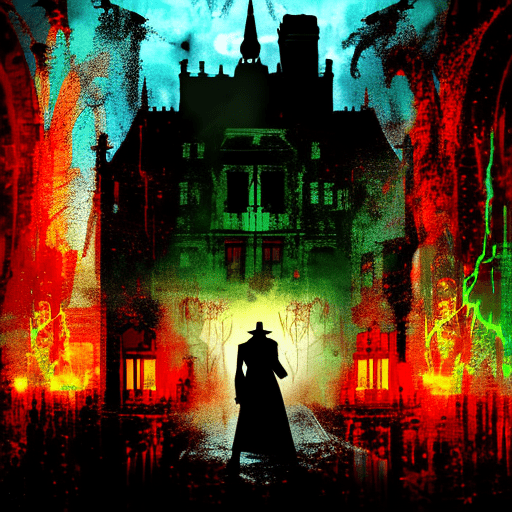One-line Summary:
Dr. Jekyll and Mr. Hyde is a chilling tale of duality, morality, and the consequences of suppressing one’s dark desires.
The Strange Case of Dr. Jekyll and Mr. Hyde: A Tale of Duality
In Robert Louis Stevenson’s classic novella, “The Strange Case of Dr. Jekyll and Mr. Hyde,” the story revolves around the respected Dr. Henry Jekyll, a brilliant scientist who becomes obsessed with the idea of separating the good and evil within himself. Jekyll creates a potion that transforms him into the sinister Mr. Hyde, a man devoid of conscience and consumed by his base desires. As the narrative unfolds, the reader is taken on a journey through the dark underbelly of Victorian London, exploring themes of duality, morality, and the consequences of suppressing one’s dark desires.
The Duality of Human Nature
At the heart of “Dr. Jekyll and Mr. Hyde” lies the exploration of the duality of human nature. Dr. Jekyll, driven by his scientific curiosity, believes that every individual possesses both good and evil within them. He becomes determined to separate these two aspects, allowing each to exist independently. However, as he unleashes his darker side in the form of Mr. Hyde, Jekyll realizes that the evil within him is far more powerful and uncontrollable than he anticipated. This struggle between good and evil within one person serves as a cautionary tale, highlighting the potential darkness that lurks within all individuals.
The Consequences of Suppressing Desires
Through the character of Dr. Jekyll, Stevenson explores the consequences of suppressing one’s desires and the dangers of denying one’s true nature. Jekyll, a respected member of society, feels compelled to maintain an impeccable reputation, leading him to hide his darker impulses. However, by suppressing his desires, Jekyll inadvertently gives them more power, ultimately leading to his downfall. The novella serves as a reminder that denying one’s true self and repressing natural instincts can have devastating consequences.
The Hypocrisy of Victorian Society
“Dr. Jekyll and Mr. Hyde” also critiques the hypocrisy of Victorian society, which prided itself on maintaining a facade of respectability while harboring dark secrets. In the novella, Jekyll’s transformation into Hyde allows him to indulge in his forbidden desires without fear of societal judgment. This exploration of the hidden vices and repressed desires of the upper class challenges the notion of Victorian respectability and exposes the hypocrisy that often lay beneath the surface.
Key Takeaways:
- The duality of human nature: Every individual possesses both good and evil within them.
- Suppressing desires can have dire consequences: Denying one’s true nature and repressing natural instincts can lead to destruction.
- The hypocrisy of society: Victorian society prided itself on respectability while harboring dark secrets.
“I learned to recognize the thorough and primitive duality of man; I saw that, of the two natures that contended in the field of my consciousness, even if I could rightly be said to be either, it was only because I was radically both.” – Dr. Jekyll
In conclusion, “The Strange Case of Dr. Jekyll and Mr. Hyde” delves into the depths of human nature, exploring the duality that exists within each individual. It serves as a cautionary tale, reminding readers of the dangers of suppressing one’s desires and the potential consequences of denying one’s true self. Stevenson’s novella also critiques the hypocrisy of Victorian society, shedding light on the hidden vices that often lurk beneath the surface of respectability. Ultimately, “Dr. Jekyll and Mr. Hyde” serves as a chilling reminder that within every person, there is the potential for both good and evil.












